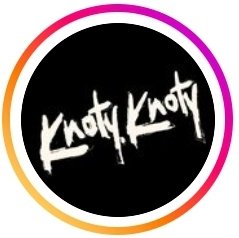On the 16th floor of a Brutalist office block, actor Joely Richardson chatted in the front row at the Roksanda London fashion week show, her salmon-pink two-piece accessorised with kingfisher tights and dramatic hand gestures.
The poetic extravagance of the clothes she was there to see – glowing clouds of sunflower organza, lavishly draped tangerine silks – was matched by the skyline which peacocked its beauty through the glass walls.
The colours were strong, the vibe modern and abstract, the furry shoes deliberately challenging.
A few hours later Emilia Wickstead, a great favourite of the Princess of Wales, welcomed guests to the Royal Geographical Society with liveried waiters bearing piles of peeled tangerines on silver trays.
Oil paintings of admirals and a marble bust of the Victorian explorer Lady Jane Franklin loomed over the wooden galleries, a catwalk for the day for the demure-with-a-twist clothes for which Wickstead is famed: a sugar-pink ballerina-length strapless cocktail dress, courtly tailoring in baby blue.
The throughline of two very different London fashion week events was female fashion designers paying tribute to the female artists who inspire them.
Before her show Roksanda Ilinčić, whose clothes take her first name, talked about conceptual artist Agnes Denes, prophetic in the urgent environmental messages in her work of 40 years ago. Wickstead said she had “fallen in love” with Gisèle Freund, a photojournalist and portrait photographer who captured iconic images of Simone de Beauvoir and Eva Perón.
Fashion gives voice to a woman’s point of view on the world, and both shows offered a riposte to the recent dominance of male creative directors in the field. At Kering – the luxury group which owns McQueen, Balenciaga, Gucci and Saint Laurent – all the major design studios are led by men. At Chanel, fashion’s most famous female-founded house, the shortlist to replace the recently departed Virginie Viard is, according to front row gossip at least, all male.
Freund “believed that photography suited the feminine mentality because women are excellent observers of human nature,” Wickstead said. Designing clothes, too, can be a form of portraiture. “I make clothes for getting dressed up, so I’m really interested in how clothes can create a public persona for women.”
after newsletter promotion
On Wickstead mood board, Freund’s work was mixed with pictures of the photographer, showcasing an androgynous taste for neckties, cravats and trousers. This collection was Wickstead’s vision of “what Freund might wear if she was a woman in 2024”.
Demure has supplanted Brat as this season’s key vibe, and Wickstead knows how to make the ladylike look modern, with exquisitely cut pastel tailoring and sweet dresses in acid sharp colours. Freund’s influence showed in the neckties – “a symbol of authority”, said Wickstead – and strong collars.
In 1982, Denes planted, tended and harvested a two-acre field of wheat in Lower Manhattan. Wheatfield: A Confrontation was a commentary on waste, world hunger and ecological concerns. Photos show the artist, in blue jeans and a striped shirt, standing alone in waist-high golden wheat as the skyscrapers of Wall Street loom behind her.
“She was asking questions about the planet and our society’s priorities, years before global warming was understood,” said designer Ilinčić, who paid homage to Denes with harvest golds and pale straw tones, and opulent fringe trims which whispered in movement-like ears of wheat in the breeze.
Ilinčić and Wickstead are still standing after a commercially bruising year.
Wickstead said: “Let’s just say that for brands that mainly sell wholesale, this has been an unexpectedly interesting year.”
But a pivot to direct-to-consumer has paid off, with e-commerce sales up 60%, and a growing market in the US.
Ilinčić, meanwhile, sold her namesake label to the Brand Group in May to avoid falling into administration. Her current projects include a collection for George at Asda, on sale next week, with prices between £14 and £60.
“Right now I’m just happy to be here,” she said. “It’s a privilege to be part of London fashion week, and with a new government, I feel hopeful.”
